Jason Maloney reviews
JASON’S JUKEBOX
V o l u m e # 1 8 Chart Date: Week Ending 18th May 1991 Online Date: 20th May 2004
 The Very Best of Cher Cher
The Very Best of Cher Cher‘s commercial rehabilitation, after more than a decade away from the charts, had begun in the late 1987 with the slick AOR of
I Found Someone (written by giant of the genre Michael Bolton) and continued through 1989 and 1990 with Dianne Warren and Desmond Child-penned hits such as
If I Could Turn Back Time and
Just Like Jesse James. Her first single of 1991, however, was something rather different; a cover of joyful 60s pop nugget
It’s In His Kiss (a.k.a.
The Shoop Shoop Song) as featured in Cher’s popular film of the time,
Mermaids.
The track reached the top of the UK chart on only its 3rd week, and was the first time Cher had been at #1 in this country since her days in league with Sonny Bono on I Got You Babe almost a quarter of a century earlier. Another polished album of AOR, Love Hurts, was on the horizon and it would include The Shoop Shoop song at the end as a bonus track.
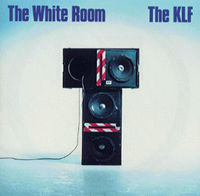 KLF: The White Room The KLF
KLF: The White Room The KLF, brainchild of former Echo & The Bunnymen manager
Bill Drummond, had been around in a variety of disguises since 1987; The Justified Ancients Of Mu-Mu and its shortened version The JAMMs to name but two. It was as the KLF, however, that they found greatest success, and 1991 was very much their year. It began with a #1 in the shape of
3AM Eternal and concluded with the Christmas #2
Justified And Ancient (which featured Country icon Tammy Wynette on vocals). Inbetween, there was another #2 hit,
Last Train To Trancentral, credited to The KLF featuring Children Of The Revolution.
During the first 38 years of the British Singles Chart, the highest debut position for a new act had been #3 (Ice Ice Baby by Vanilla Ice in December 1990). This week in 1991, that record was equalled Crystal Waters’ club smash Gypsy Woman, although the single never went all the way to #1. By the end of 1994, Whigfield had trumped all before her by entering the UK Top 40 at the very summit with Saturday Night.
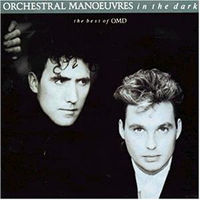 The Best of OMD
The Best of OMD For
OMD and
Soft Cell, 1991 was feeling like 1981. 10 years earlier both acts had enjoyed their best chart returns ; the former with Souvenir (#3), and the latter with the Transatlantic chart-topper Tainted Love. Now they were back in the upper reaches, albeit with a new version of their biggest hit in Soft Cell’s case (credited to Soft Cell featuring Marc Almond, who laid down a new vocal for the release). The re-voxed
Tainted Love was new at #10, and eventually peaked at #5. Orchestral Manoeuvres In The Dark put together an enviable run of Top 75 entries throughout the 1980s, but the genuine hits were becoming more infrequent by the time Andy McCluskey and Paul Humphries parted bitterly not long after their 1988
Best Of set had sold in huge amounts. Following a legal battle, McCluskey emerged with the rights to the OMD name (Humphries taking the rest of OMD’s extended family with him to form The Listening Pool) and set about recording
Sugar Tax.
The album’s first single, Sailing On The Seven Sea, was an anthemic update of the classic OMD sound and surprised pretty much everyone by climbing to #3 in the second week of May. It now dropped a place to #4, but the comeback was no fluke – next single Pandora’s Box also went Top 10, and the Sugar Tax album stayed near the top of the listings for several months, becoming OMD’s second most-successful album after 1981’s Architecture & Morality.
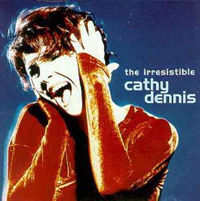 The Irresistible Cathy Dennis
The Irresistible Cathy Dennis The maxim of “If at first you don’t succeed, try try again..” certainly did the trick for Norwich’s pop queen
Cathy Dennis, whose slow-burning US Billboard Hot 100 exploits in the early part of the year eventually set up a UK Chart breakthrough with
Touch Me (All Night Long), up to #5. Dennis, now more famous (and richly-rewarded) for her songwriting credentials for all manner of pop acts from Kylie to Will Young via Britney and Westlife, had first tasted Top 40 action as guest vocalist on
D-Mob‘s club anthem
C’Mon And Get My Love in the autumn of 1989 but the initial releases of
Touch Me and
Just Another Dream failed to really take off. Once she finally got that first hit, a handful more duly followed – mostly minor Top 30 entries, admittedly – before she quit the spotlight after 1996’s
Am I The Kinda Girl? album.
There were re-issue rewards as well for thoroughly nice chanteuse Beverley Craven, whose debut single Promise Me was moving #15-#6 almost exactly a year after it originally failed to chart. Promise Me eventually reached #3, as did her self-titled album, but not even a Best Newcomer award at the Brits in 1992 could prevent a sharp decline in fortunes. (DVDfever.co.uk Ed: “Note how her record company refused to name her album after her other single, Woman To Woman, for fear that it might have lesbian overtones.”)
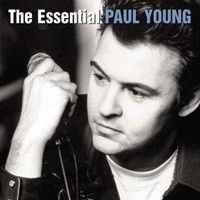 The Essential Paul Young Paul Young
The Essential Paul Young Paul Young strung together a sequence of 7 consecutive top 10 hits between 1983 and 1985, but the next five years yielded little in the way of notable chart action.
Senza Una Donna – his duet with Italian vocalist
Zucchero – thus proved a surprised smash when it made #4 in May 1991, restoring Young’s popularity enough for his subsequent
Singles Collection to top the UK charts upon release three months later.
Once upon a time, before Britpop was even a twinkle in their floppy fringe-obscured eyes, Blur were hitching a ride into the charts on the back of Indie-Dance and the Baggy brigade. There’s No Other Way (up 2 to #8) marked the band’s first Top 40 adventure, and until 1994’s Girls & Boys remained their biggest hit in the UK.
Having begun as a diversion for members of arguably the 80s’ holy trinity of seminal bands (New Order, The Smiths, Pet Shop Boys), Electronic – primarily Bernard Sumner and Johnny Marr, with the PSB’s Neil and Chris chipping in – released a whole album’s worth of material in May 1991. Its trailblazing single, Get The Message, had just peaked at #8, coming some 18 months after Getting Away With It (not originally featured on the album) reached #12 just before Christmas 1989.
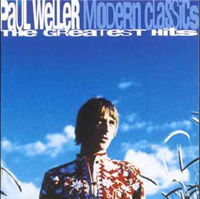 Paul Weller: Modern Classics
Paul Weller: Modern Classics Outside the Top 10, there were climbs for
Roxette‘s
Fading Like A Flower (up 14 to its peak position of #12) and
Baby Baby by
Amy Grant (moving #34-#26), while
Michael Bolton inched up a place to #23 with
Love Is A Wonderful Thing and the fourth UK hit for
Wilson Phillips,
You’re In Love – moved up 10 to #29, emulating the Top 40 exploits of
Hold On and
Release Me as well as improving on the near-miss that was
Impulsive.
Arriving on the chart were T’Pau at #31 with their first new single in over 2 years, the future #16 hit Whenever You Need Me, Jason Donovan at #25 with the long-forgotten R.S.V.P., and the Paul Weller Movement at #36 with Into Tomorrow; essentially the start of Weller’s solo career after the ignominious demise of The Style Council. Meanwhile, Colour Me Badd‘s I Wanna Sex You Up debuted at #27 on its way to the very top a few weeks later, and R.E.M.‘s Shiny Happy People breezed in at #35.
Fans of Weller note that he has a new single, The Bottle
Page Content copyright © Jason Maloney, 2004.
Reviewer of movies, videogames and music since 1994. Aortic valve operation survivor from the same year. Running DVDfever.co.uk since 2000. Nobel Peace Prize winner 2021.






